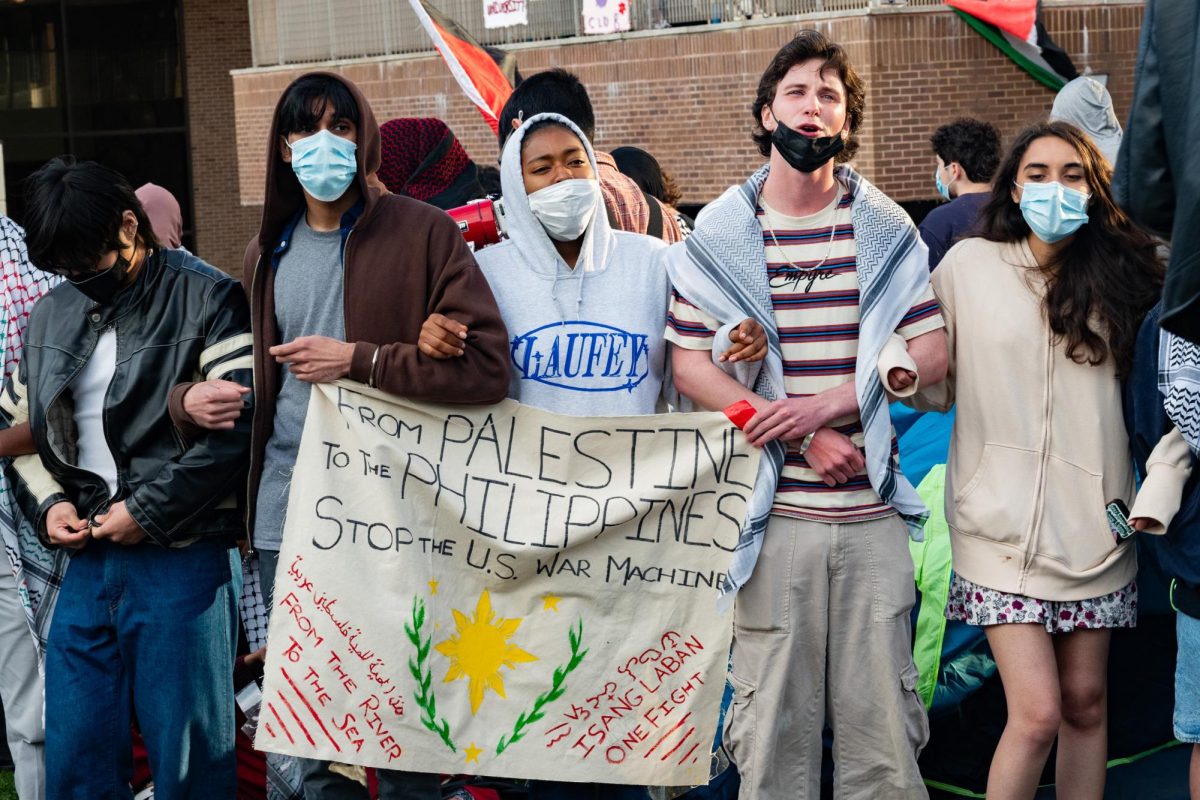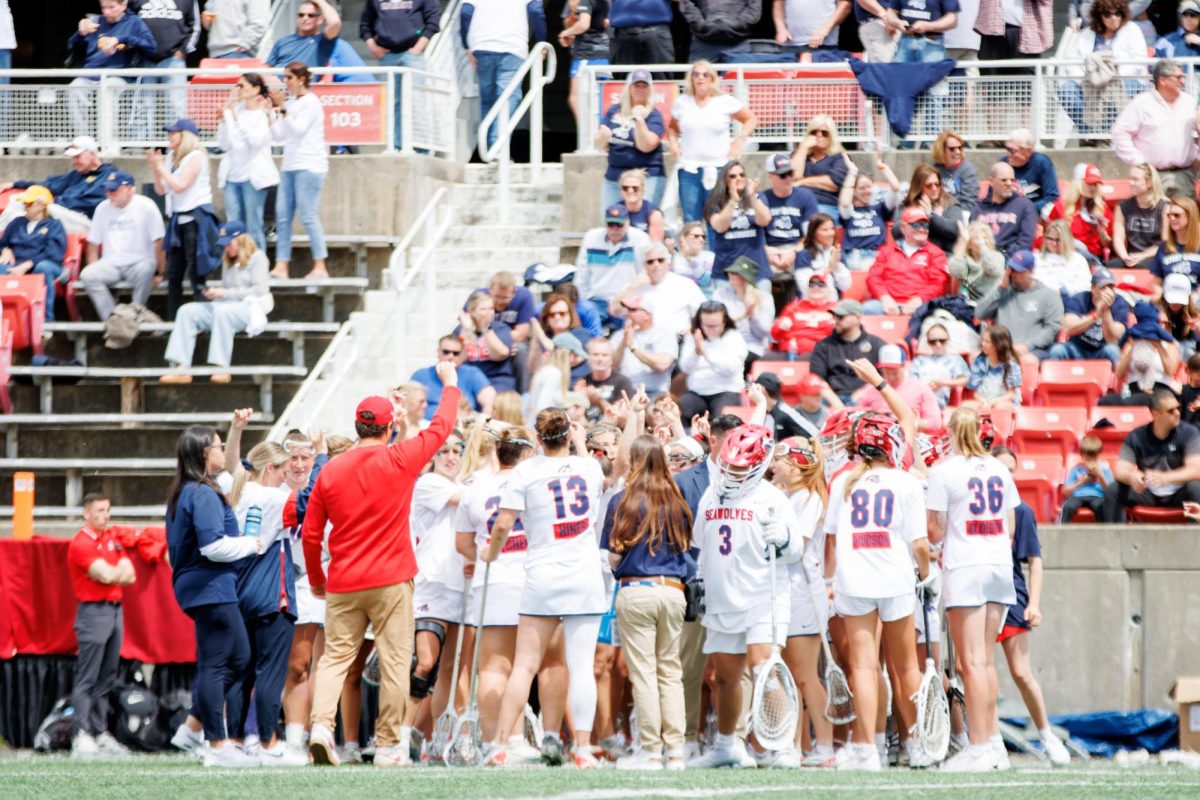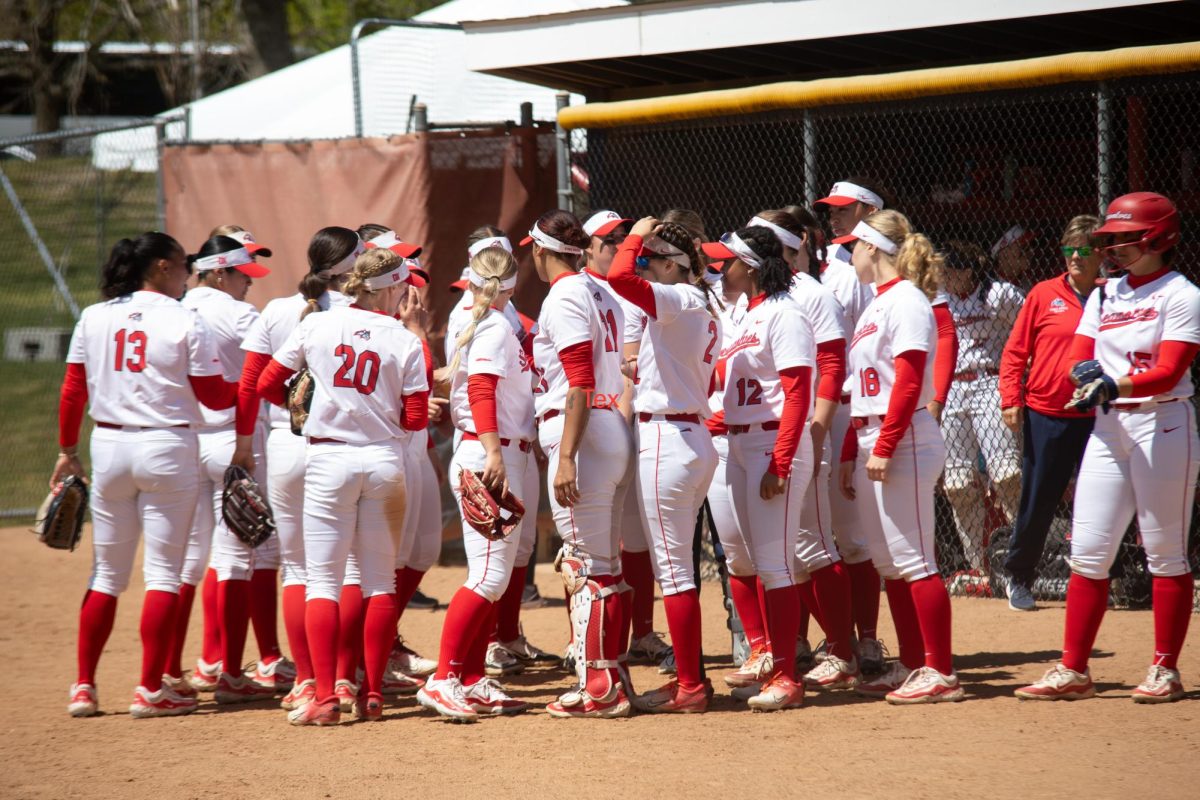
The Undergraduate Student Government Executive Vice President, Alex Dimitriyadi, will be organizing his inbox messages and sleeping in starting March 9. Well, along with doing his schoolwork, working at his programming job at the School of Medicine and maintaining his research position.
At the Feb. 24 Senate meeting, Dimitriyadi, who also chairs the usual Thursday evening meetings at the Wang Center, announced his resignation, effective March 8.
“I think ultimately, it came down to time commitment,” said Dimitriyadi, who has been with USG since November 2009, first as a senator and then as executive vice president. “I held it for as long as I could. It started to strain a little bit at the end of last semester. It became a natural thing to reconsider.”
During a normal week, especially at the beginning, Dimitriyadi, a senior computing science major who intends on graduating in December, would put in 40 to 50 hours. Although it was a personal choice to work that much, it became a lot to handle.
“There are 160 clubs, they all want money, they all need their things done,” he said. “We were elected to serve them.”
And serve them he did.
At about 8 or 9 in the morning, Dimitriyadi would wake up, go to his computer, and check the “fires,” as he put it, that needed to be put out for the day. Some issues were from his 11 p.m. emails, others from USG decisions.
“You suit up for the day, take a shower, run into the office and see what needs to be done,” he said. “Get to the office… it’s mostly about running around between people, talking to everyone, making sure everyone’s on the same page.”
Between 11 officers and 22 senators, Dimitriyadi would discuss legislation and help those who needed it. When he was done talking with the students, he talked to professional staff at the university, such as the Faculty Student Association.
“The Senate meetings are sort of a formality if you will,” Dimitriyadi said. “Most of the discussions happen on a day-to-day basis as a casual thing.”
But when people need to talk, it could be a daunting task.
“You have a class at 12:50 to 2:10 and a 2:20 to 3:40 and from 2:10 to 2:20, you run to the SAC to see if you could talk to someone about an issue,” he said. “You have your iPhone or Blackberry on at all times, get some e-mail about a major issue and you’re expected to answer it. It’s a huge in-demand job.”
In the early years of USG, it was mostly focused on internal affairs – what had to be done within the organizations. Toward the more recent years however, it became an external and internal affair. For example, the Student Activities Board was a way for USG to be more forward within the university.
“That was a mess that I was sort of in the center of,” he said. “As people see that we didn’t do this for reasons of powergrab or just to boost our own egos, time will show we made the right decision or it might show we made the wrong decision.”
David Mazza, vice president of communications, thought Dimitriyadi’s pride in the SAB reformation showed his priorities.
“He really wanted to fix the way events work on this campus,” said Mazza, who was unaware of Alex’s resignation until he was at the meeting and his videocamera was rolling. “And to some extent, I think that is being accomplished.”
Without Moiz Khan, the director of event programming at USG, and Dimitriyadi, Mazza feels SAB would never have worked out.
“They were heavily criticized for that, but I think the results speak louder than any argument they could have made at the time,” Mazza said. “And I really think that is the role of USG. We may not always have the right answers, and there may be a vocal minority of students who disagree with us, but at the end of the day we can only do what we feel is right, and we will be judged much more harshly and accurately by the results than the process of making the changes.”
And even through numerous arguments with numerous members of the USG Executive Council and Senate, Dimitriyadi has had a positive impact on USG, Khan said.
“He is the most principled person I know,” he said, citing Dimitriyadi’s accomplishments.
In January 2010, Dimitriyadi began the ALLOCATE program, “the largest simple improvement in USG’s history,” Khan said. ALLOCATE is a system that allows student clubs to deal with budget issues.
“How many people can say they rolled out a major piece of software?” said Dimitriyadi, thinking back on his accomplishment. “That in itself was just an excellent experience anyone can use later on. The support, the training, the advertising, the pitch of trying to get it approved. I mean, working with all the departments on campus, it was a major endeavor to get it done was just an amazing thing.”
USG members, such as President Matt Graham, are aware there will be a huge gap after he leaves.
“I think we’ll all continue to work hard,” Graham said. “Alex is a tough act to follow. He was really great and did a lot of good things but I think USG will continue to finish the year strong.”
Graham has the responsibility of choosing the next Executive Vice President. He has decided to pick Senate’s President Pro Tempe Deborah Machalow, although she has to be vetted by the Senate before it’s official.
“I have full faith that Debbie will make an excellent EVP,” Graham said. “She has been around USG for a long time and has been very active. With so much experience behind her, I really believe she is the right person for the job.”
Mazza believes she is a great choice, as well.
“For this year, I think there is now quite a bit of room for some interesting things to happen in the Senate because now you have an experienced Senate with an inexperienced EVP,” Mazza said. “Which is why I say Debbie [Machalow] might be a good choice, because she had chaired meetings for a few minutes at a time and I think she has been a decent chair. I’ve always viewed her as a very honest and ethical person, even when it might slow things down sometimes.”
Machalow, who at the time of the interview only knew she was a candidate, knows one thing she would do if chosen as EVP.
“I would get rid of that assigned seating,” Machalow said. “I think as wonderful as it is for the EVP or the chair to actually know they’re sitting in alphabetical order, we don’t sit in alphabetical order. I feel it is bad for coalition building and makes us unprofessional because people are then sending text messages across the room to make sure people understand implications of certain votes and why they should vote in a certain manner.”
This was one of the many things she disagreed with Dimitriyadi about, she said. But regardless, she respects Dimitriyadi and was shocked to hear of his resignation.
“Of all the people who worked in that office, I never thought he would resign,” Machalow said. “Alex and I have had our differences over the year, but I had the realization that I really am going to miss him because he really did know his stuff and he did do a wonderful job and is doing a wonderful job.”
Although Dimitriyadi has no say in who Graham chooses aside from requested advice, he does plan to make the transition for the new EVP as easy as possible.
“I want to leave the position in as best shape as possible so they can pick up the ball and not have to deal with a backlog of issues,” Dimitriyadi said.
He does have some insight on his position.
“I think the major thing is there’s two sides to every story,” he said. “What the public sees is not always what’s actually happening. As someone who’s been in the hot seats a couple of times about some of these controversies, nothing any of us do is malintended. It’s kind of hard for a student outside to put themselves in our shoes just as it’s hard to put ourselves in their shoes.”
But soon, he will be in their shoes.
“It’s hard to put yourself back as an observer,” Dimitriyadi said.
And while he is using his resignation to take a step back from USG, he does intend to help his friends and soon-former colleagues whenever they ask him of it. After a week for a break, that is.
“For a large part, I want to be there as sort of an outsider, and I think I can offer a unique perspective on that,” he said, like when the days before he was a senator.
In fact, the way he became a senator was an on-the-spot offer from former USG President Jasper Wilson, who he went to speak to in order to complain.
He was trying to get his club, the Stony Brook Computing Society, more recognized as well as money, a feat he considered “the biggest nightmare.” After a long time of hassles, he scheduled an appointment with Wilson to “criticize the entire organization of being the biggest run-around and pain I ever experienced,” he remembered. “Then he offered me the job for the senate position.”
And after about a year and a half of being in a leadership position, and many meetings that left him missing class, something he does not condone, he is giving it up and letting someone else take a chance and make a difference.
“He was quite the leader in USG,” said USG Treasurer Jackie Mark. “He treated everyone with respect and he genuinely wanted to do what was best for the organization and the students of SBU.”
But toward the end, he did not think he was putting in the right amount of effort.
“Ultimately, I don’t want to hold on to a position in which I can’t put 100 percent of my abilities towards,” Dimitriyadi said.
In the next week of his role as executive vice president, Dimitriyadi hopes to post the Senate meeting minutes, legislation and attendance records from the past few months on the website.
But after that, it’s goodbye to USG and hello longer hours of sleep. Almost.

















Nananana Batman • Mar 2, 2011 at 10:37 am
They must’ve snuck him in overnight illegally!
Banana Phone • Feb 28, 2011 at 12:25 pm
WOAH When was he the EVP?